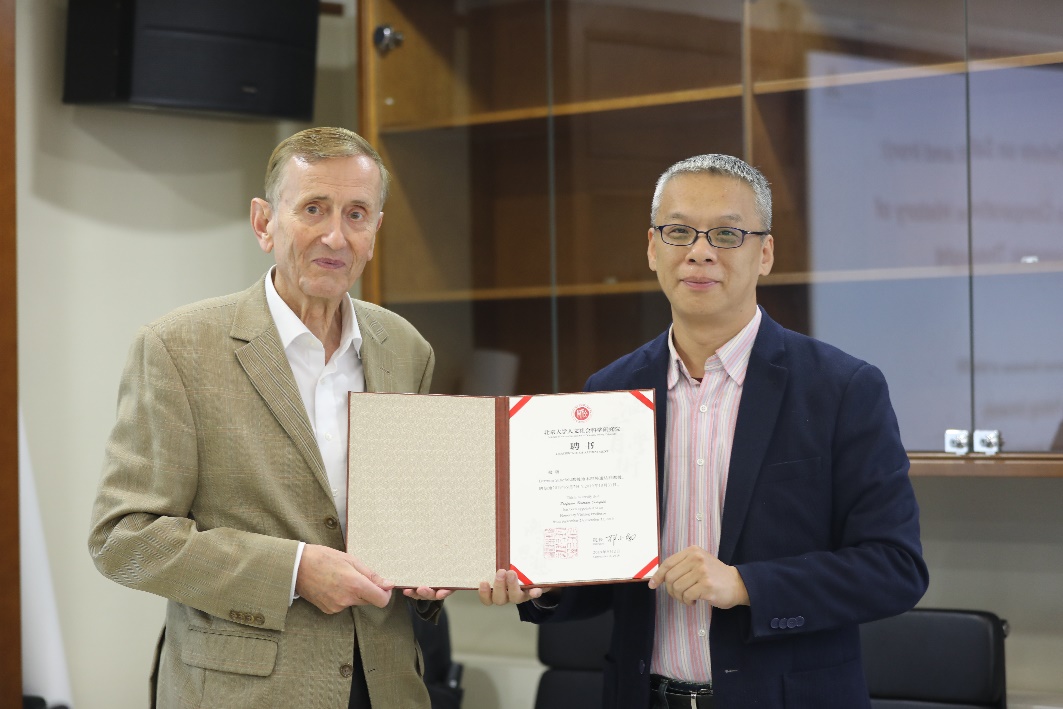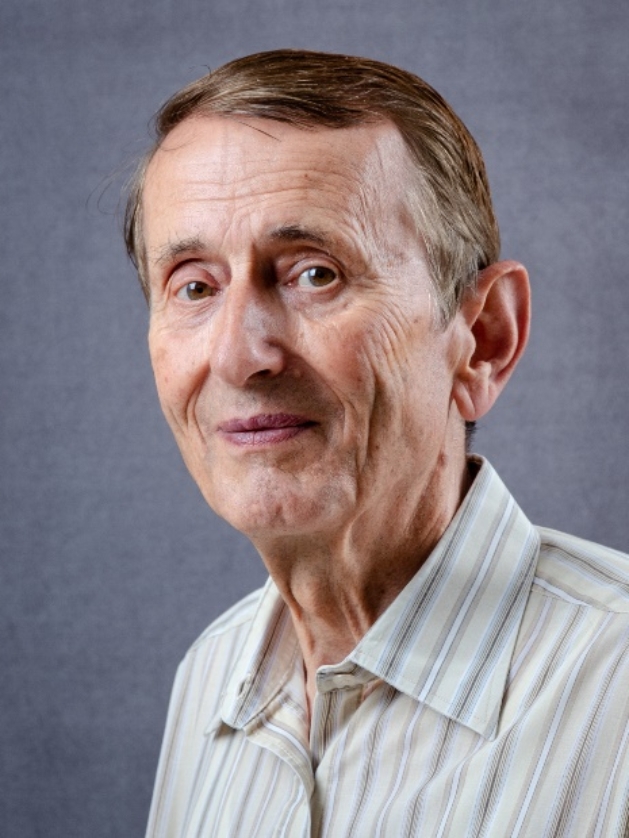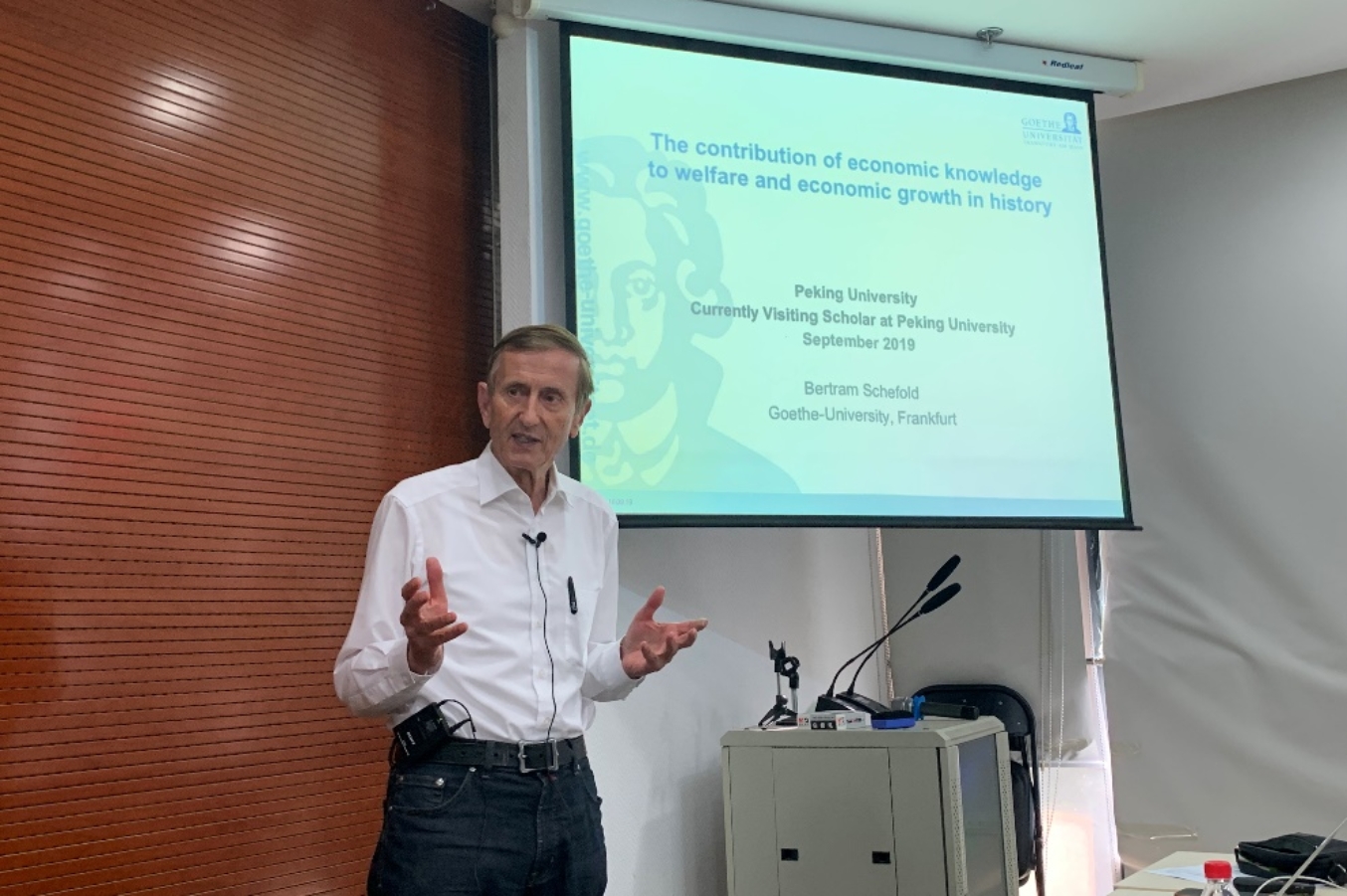German economist Bertram Schefold visits Peking University
Nov 12, 2019
Peking University, November 9, 2019: At the invitation of the Institute of Humanities and Social Sciences (IHSS), PKU, Professor Bertram Schefold, a renowned German economist and sociologist, honorary chairman of the European Society for the History of Economic Thought, visited Peking University from Sep 1 to Oct 31 this year. Schefold engaged himself in several academic activities and gave two keynote speeches respectively at IHSS and the School of Economics. He exchanged in-depth views with Peking University students as well as economists and historians both inside and outside the university.
The image of Bertram Schefold
Schefold was born into an academic family in Basel, Switzerland in 1994. His grandfather was one of the pioneers of German anthropological studies and his father was a noted European archaeologist. Benefited from the academic ambience of his family, Schefold dug deep into mathematics and philosophy in his early years and received a B.A. in mathematics, physics, and philosophy. Afterwards, Schefold studied with Joan Robinson, Piero Sraffa, Nicholas Kaldor and others in Trinity Hall, University of Cambridge and became an important member of Neo-Cambridge School. He engaged himself in the Cambridge capital controversy and dove into academic debates with Paul A. Samuelson and John R. Hicks. Since 1974, Schefold has taught economics at Goethe University Frankfurt. During the past forty-five years, he has served as dean of the School of Economics, Goethe University of Frankfurt, chairman and now honorary chairman of the European Society for the History of Economic Thought. Schefold has published over fifty works, over three hundred papers and a number of academic commentaries in the domains of capital theory, history of economic thoughts and environmental economics. He has visited the United States, France, Italy, Japan, Norway, India, and other countries to conduct academic exchanges as a visiting scholar. In Europe, he was involved in the compilation of the complete works of Marx and Engels (MEGA) as a leading authority of Marxian economics studies. His main works include Great Economic Thinkers, Normal Prices, Technical Change and Accumulation, Studies in Political Economy, Joint Production and Other Essays and Business Cycles in Economic Thought (edited).
On Sep 7, 2019, Schefold joined the "School Dialogue" Forum on the transmission of foreign cultures and the innovation of Chinese financial industry held by the School of Economics, Peking University. Attendees discussed extensively on the relationship between Chinese ancient religious culture and current financial industry development. Based on European experience, Schefold introduced the Neo-Fisher Effect and the financial practice of European Central Bank.
On Sep 18, Schefold gave a themed lecture on the contribution of economic knowledge to welfare and economic growth in history. Numerous scholars had tried to answer the question why the Industrial Revolution first took place in Europe rather in contemporaneous China, India or Arab. Schefold offered his thoughts that western Europeans comprehended economic knowledge better in the late Middle Ages, which contributed to the European economic growth.
Schefold giving his speech
On Sep 25, Schefold delivered a speech to discuss the "transformation problem" in Capital. He came to the conclusion based on his studies that this "transformation problem" could be solved within a stochastic system.
On Sep 27, Schefold attended the founding assembly of the Department of Economic History in the School of Economics, Peking University. As honorary chairman of the European Society for the History of Economic Thought, he congratulated on the founding of the department and pointed out the significance of economic history studies in the disciplinary construction.
On Oct 7, Schefold lectured on The Universality of Economics: modern economics’ explanatory ability towards ancient European capitalism in IHSS. Aimed at answering the question whether modern economics can be used to analyze Ancient Greece and Rome’s economics, he introduced the opinions of former scholars and drew his conclusion. Numerous scholars attended this lecture and had a heated discussion.
On Oct 17, Schefold delivered a report about Yan Tie Lun (Discourses on Salt and Iron) at a scholar symposium held by IHSS. He strongly promoted attention and studies on ancient Chinese economic thoughts and chose Yan Tie Lun as a classic work to conduct his further studies. Schefold believed that YanTie Lun contained the germination of modern economic thoughts and had influenced Chinese economic governance for two thousand years along with GuanZi.

Executive Vice Dean of IHSS Qu Jingdong issuing the letter of appointment to Schefold
Written by: Liu Zijing
Edited by: Wei Yunqi
Source: PKU News (Chinese)


